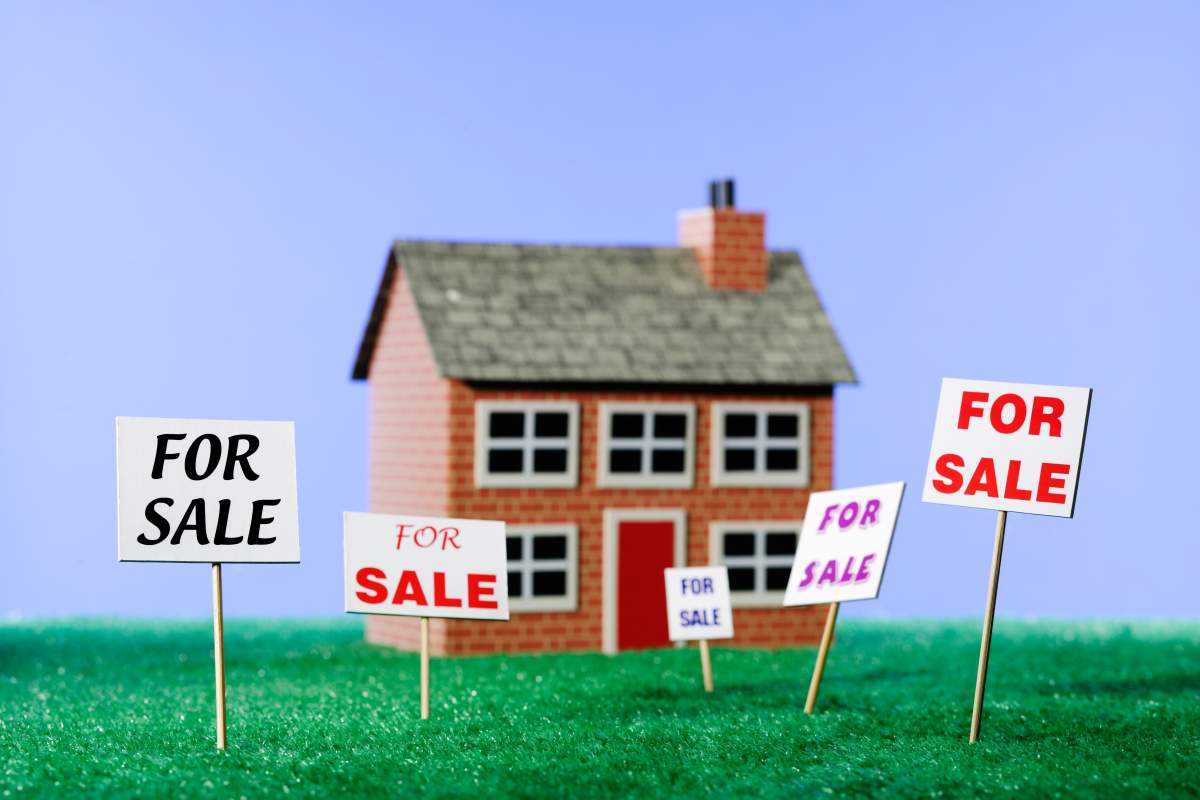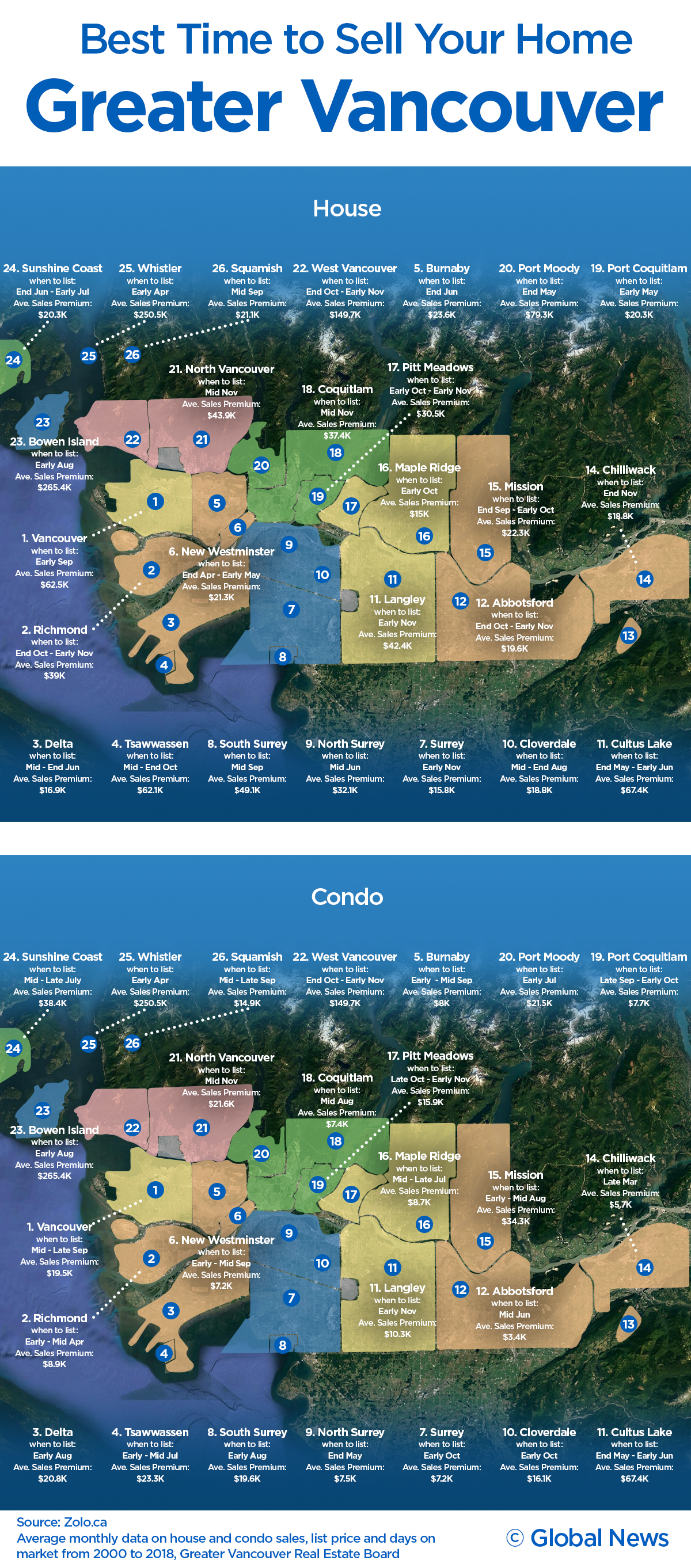It’s spring, but the real estate market in much of Canada has yet to exit hibernation.

Home sales in Metro Vancouver for the month of March plummeted to the lowest level since 1986, according to the Real Estate Board of Greater Vancouver. Activity in Alberta and Saskatchewan was more than 20 per cent below its 10-year average for the month, the Canadian Real Estate Association (CREA) said. In Toronto, sales volumes were flat.
READ MORE: House prices down 1.8 per cent year-over-year in March, sales also lower, says CREA
Granted, there are still signs of life in some parts of the country. Sales in Quebec and New Brunswick, for example, were well above average.
But many Canadians who need to sell a house this year will likely meet unfamiliar market conditions — those of a slow-moving housing market. Real estate agents, meanwhile, are dusting off their playbook from a decade ago, before the housing craze began.
So what does it take to sell your house in these conditions?
WATCH: How recent decline in home prices could affect your life’s biggest investment

Curb your price expectations
The first step to get your home sold in this kind of market is to think hard about your pricing strategy.
In Vancouver, where the April housing market is looking a lot like March, real estate agent Steve Saretsky says buyers should price ahead of the market.
There were less than 1,800 recorded transactions in the Greater Vancouver area last month, CREA numbers show.
“If you want to be one of the few houses that sell, you have to set the market, not react to it,” according to Saretsky.
Given the current downward price trend in the city, that means a home that may be worth $1.4 million today may have to be priced at $1.375 million he said.
READ MORE: How high on the income ladder do you need to be to afford a home in Canada?
Know that the spring housing market isn’t everything
- Can Trump decertify aircraft? What experts say amid Bombardier threat
- Bombardier warns of ‘significant impact’ to travellers from Trump’s threat
- Corus to seek court approval of recapitalization plan after shareholder vote narrowly fails
- Canadians have billions in uncashed cheques, rebates. Are you one of them?
Many people believe the best time to put their home on the market is somewhere between March and June. That’s understandable since the spring is when most buyers start house hunting, said Romana King, director of content at Zolo.ca, an online real estate marketplace. The common wisdom is that parents, in particular, are keen to seal a deal by the start of the summer to be able to resettle the family in time for the start of the school year in September, she added.
The spring is often when you should list your home if you want to sell it fast, according to King.
“But if you want to sell a home for top dollar, you’re not necessarily selling it the quickest,” she added.
When Zolo analyzed housing transaction data going back around 15 years in both Greater Vancouver and the Greater Toronto Area, it found that there was often a price premium for sellers who listed in the fall. Your home may remain on the market for longer but net you a higher offer in the end, King said.
King also cautioned against reading too much in some of the larger estimates, like Whistler’s $250,000 premium for April listings. Those are areas that have seen significant volumes of new buildings added to the local housing supply over the past decade. Newer homes tend to sell for more so that can skew averages, King said.

Get weekly money news
‘Sell before you buy’ is a thing again
Some agents are advising some clients to sell their home before they commit to buying a new one.
“I typically recommend that people sell first, in particular if their home is priced above $1 million,” John Pasalis, president of Toronto real estate brokerage Realosophy Realty, told Global News via email.
These days, the market for sellers is “a bit less predictable” than it has been in the recent years, Pasalis said. People who buy first are typically under pressure to sell quickly so they can free up cash to finance their new home. That means “they don’t always have the luxury to be patient with the marketing of their home,” he added.
READ MORE: Homebuyers to get new mortgage incentive, Home Buyer’s Plan boost under 2019 budget
Typically, selling first makes sense if you’re in a buyer’s market, King said. When buyers have the upper hand, selling is the difficult part. Vice versa, once you’ve cleared that hurdle, finding a new home should be relatively easy, King noted.
Her rule of thumb is to sell before you buy in a buyers’ market and buy before you sell in a hot market that favours sellers. A balanced market is always a bit of a toss-up, she said.
But figuring out what market you’re in requires some legwork, she cautions.
And keep in mind that if you’re changing neighbourhood or transitioning from, say, a house to a condo, the conditions of the market you’re selling in may be different than those of the market you’re buying in, she added.
WATCH: The pros and cons of renting vs. owning

Longer closing times and conditional offers are back
If your plan is to house hunt only after you’ve accepted an offer on your home, you may want to make sure that you can find and take possession of your new place before you lose ownership of your old property, King cautioned. This means the closing time — the period between when an offer is accepted and when ownership is transferred — needs to be longer on the property you’re selling than on the property you’re buying.
Closing times as short as 30 to 60 days have become the norm, but in a slower housing market, there’s nothing wrong with telling a buyer that you’re going to need 90 to 120 days, according to King.
“Yes, you’re going to have to pay your double mortgage for a month or two — but that’s a cheap price to pay for some peace of mind,” she said.
READ MORE: Is the home you’re buying at risk of flooding? It can be hard to find out
If you’re buying first, consider submitting an offer that is conditional on you being able to sell your home. In a sellers’ market, such conditions may scupper the deal. But that is less and less the case in a slow market, according to King.
“In the last 10 years these conditions disappeared … because everyone was rushing to try and get into the market,” she said.
Now, though, she added, they’re making a comeback.
WATCH: The pros and cons of a 30-year mortgage

De-personalize your home and punch up your curb appeal
If you’re showing the house while still living in it, you and your agent won’t be able to stage it the way you would if you had moved out. But you should still de-clutter and de-personalize your space, according to King.
Ideally, your home should be a “blank canvas” in which other people — your prospective buyers — can see themselves living, she said. Your job as a seller is to enable that fantasy.
That means things like family photos, children’s artwork pegged to the fridge, and knickknacks from your trip to Mexico that only mean something to you have to disappear, King said.
And creating a blank slate may also mean repainting your walls white — or some mainstream-trendy shade of light gray, she added.
Another kind of sprucing up you should invest in if you’re selling a house, rather than a condo, is improving your curb appeal, King said. Things like hiring a gardener to fix up your front yard or filling up the cracks in your driveway pay off, she added.
WATCH: The first-time homebuyer incentive explained

What to do if your home isn’t selling
If your “for sale” sign has been sitting on your lawn for a while with no sign of the dream offer you were expecting, there are usually two main courses of action. One is reducing your asking price, the other is re-listing at a later date.
If you’re getting few showings and no strong offers, “that’s usually a good clue that the issue may not be your list price, but rather the current market conditions,” Pasalis wrote in a recent blog post. If you can hold out for a few months, it may be a good idea to postpone selling until the market picks up.
But if you realize your pricing wasn’t realistic, you should look at reducing your ask “sooner rather than later,” Pasalis told Global News.
Most sellers are inclined to do so only gradually, but a series of small reductions of $10,000-$15,000 won’t cut it if your price is significantly out of whack, he said.
At the end of the day, Saretsky mused, “you’re only worth what you sell for.”
“Everybody wants to get a little bit more than their neighbour did. But if you can keep your emotions in check, that’s going to serve you well.”










Comments